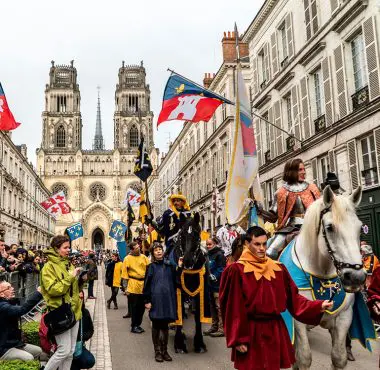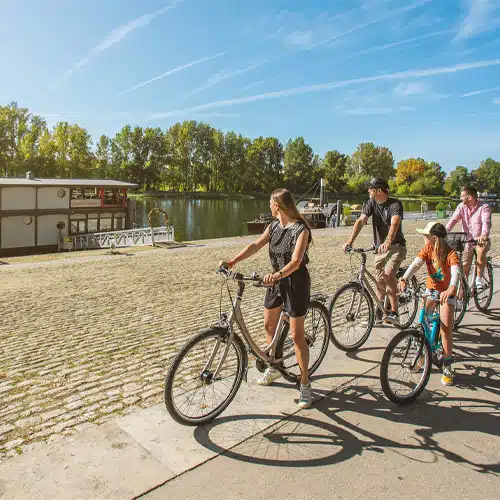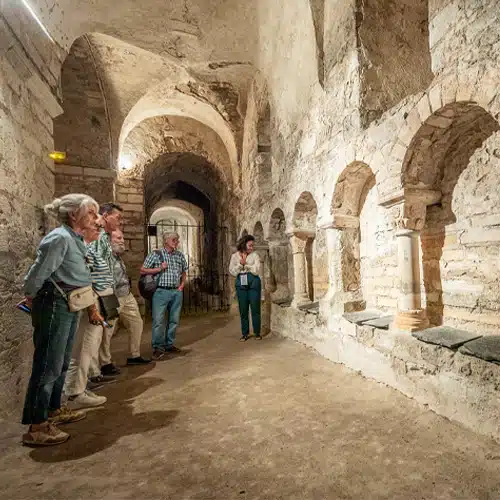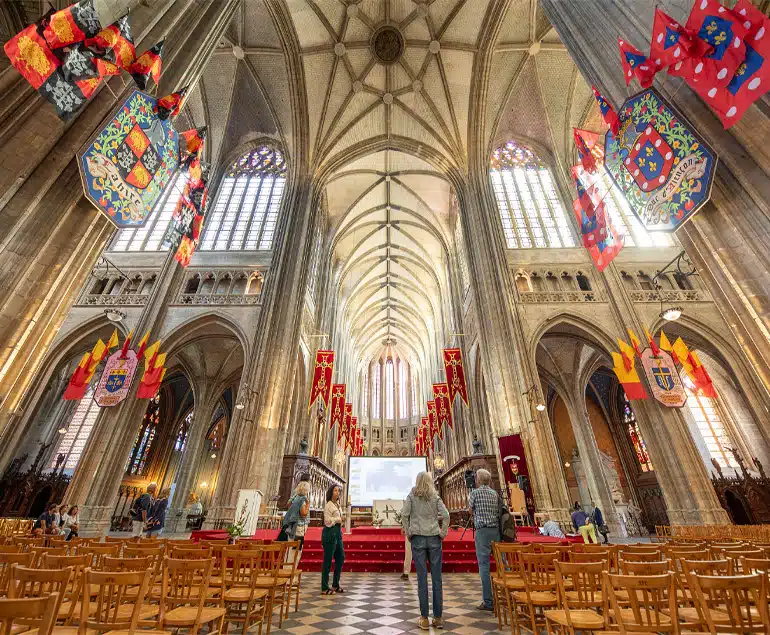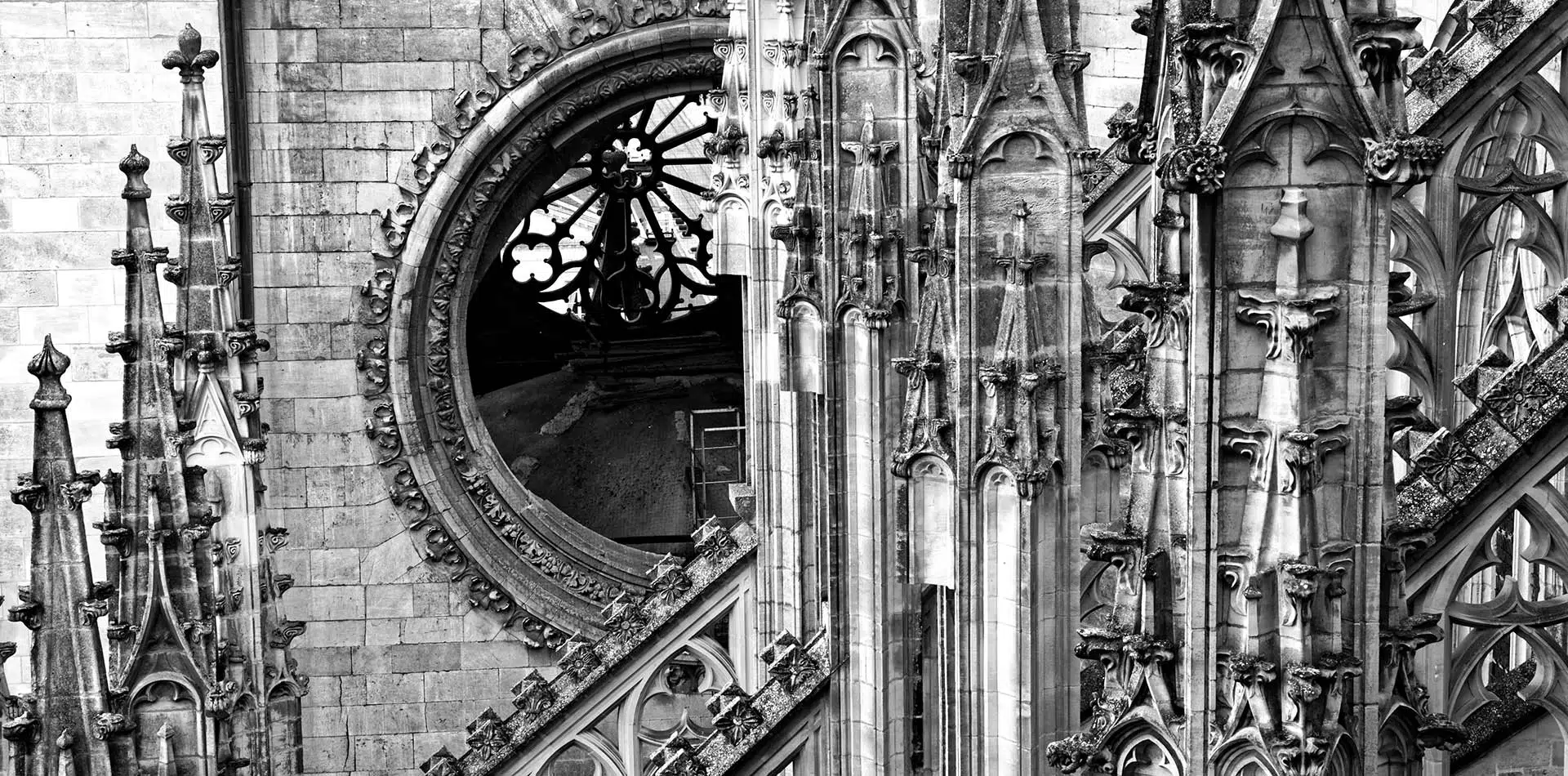Antiquity
The site of Orleans has been occupied since ancient times. Cenabum, the name of the settlement founded at this crossing point of the Loire, became a well-known and prosperous city on the north bank of the river protected from flooding.
Later conquered by Caesar, Orleans was named Aurelianum in 4 AD.
The ruins of Gallo-Roman ramparts on Rue Paul Belmondo on the north side of Sainte-Croix Cathedral are vestiges from this period.
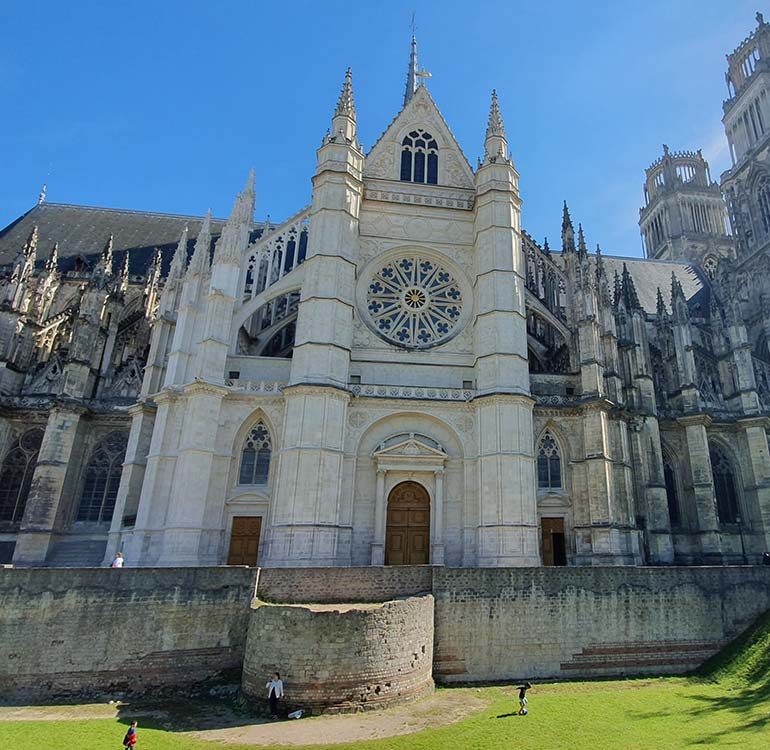
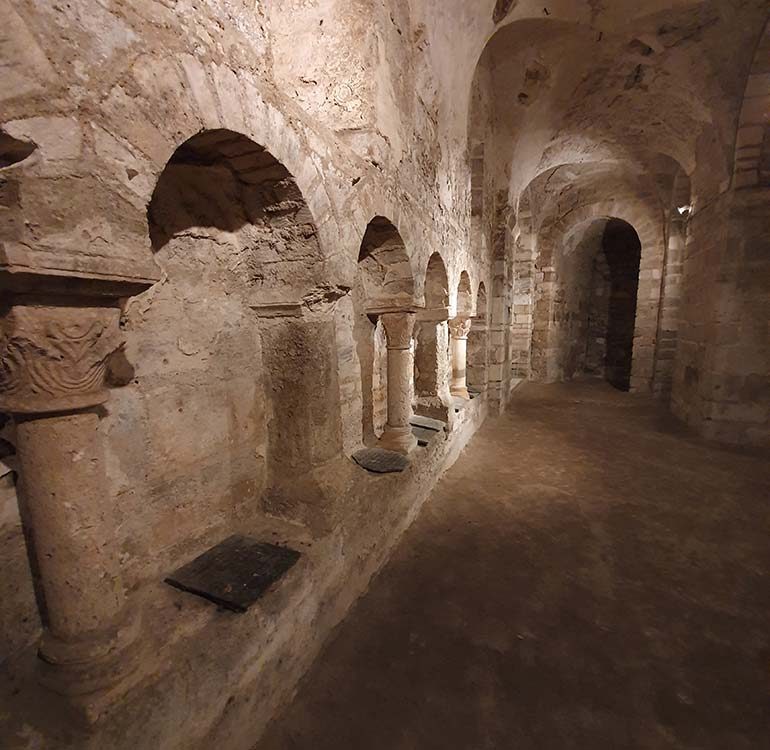
The Middle Ages
Orleans played a pivotal role in the kingdom both politically and economically.
During Clovis’ reign, Orleans was the centre of one of the four kingdoms in Frankish territory.
The more strategically positioned Paris became the clear choice for capital of the kingdom in the 7th century. Orleans, at the crossroads of well-travelled trade routes on land and water, nonetheless continued to prosper and its wine industry thrived.
In the 14th century, the city became home to one of most prestigious universities whose illustrious students included reformist Jean Calvin.
Orleans was also the theatre of war for the watershed siege of the Hundred Years’ War.
The siege of Orleans
A long series of clashes between England and France over succession to the French throne coinciding with civil wars, the Hundred Years’ War reached its peak between 1411 and 1435.
The financially and militarily drained adversaries faced off around Orleans against a confusing political backdrop.
The arrival of Joan of Arc in 1429 boosted morale among French troops who succeeded in forcing the English to withdraw from Orleans after a 7-month siege.
Charles VII was then crowned in Reims and led the campaign to retake Paris despite the setback of the capture (May 1430) and execution (May 1431) of Joan of Arc.
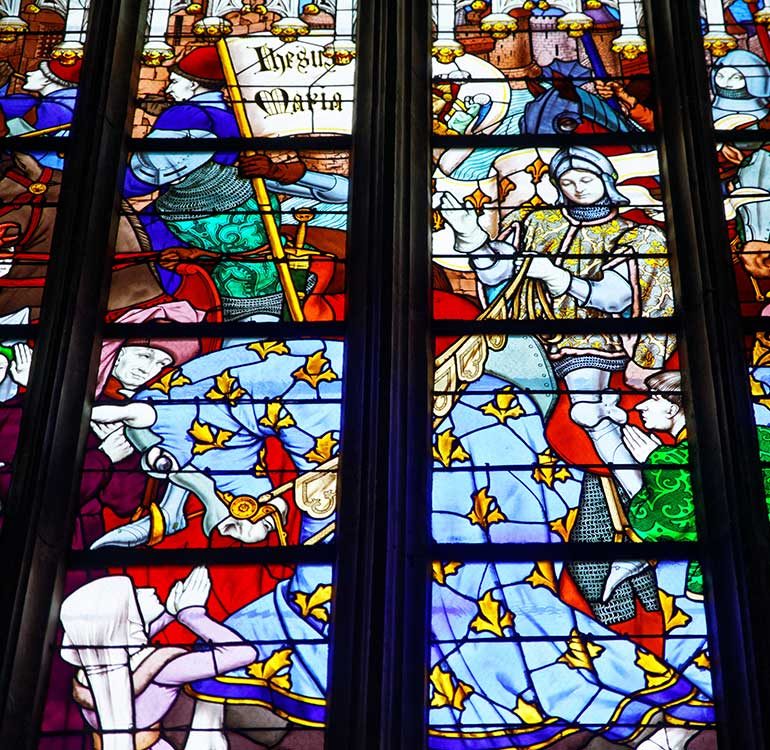
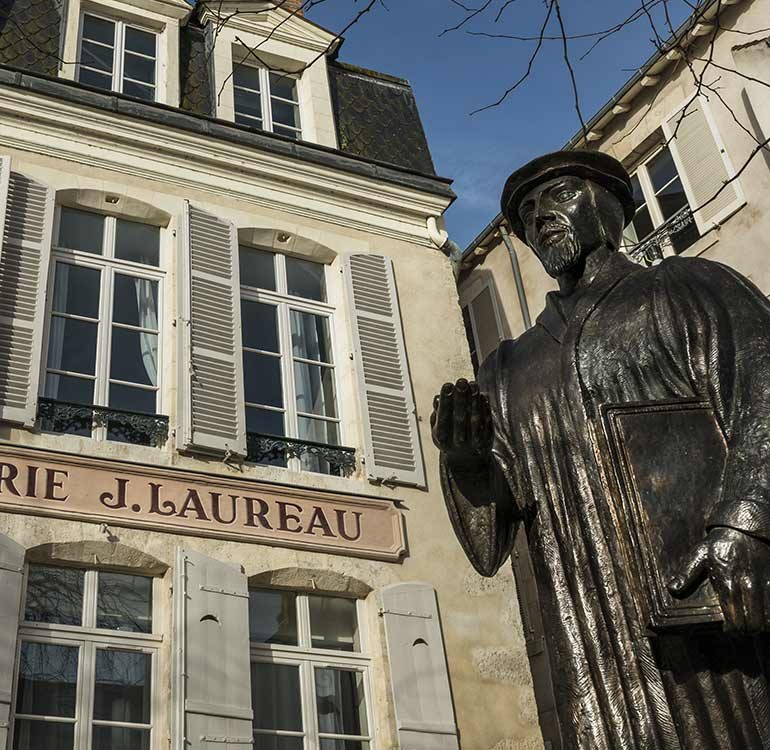
Orleans’ golden age
In the 16th century, Orleans was one of the centres of the Reformation in France.
The city’s prestigious university attracted many humanists such as Erasmus who promoted Latin and Greek culture and new ideas among the urban elite. At the same time, German students brought Martin Luther’s Theses to Orleans where they increasingly garnered support.
By the mid-16th century, Orleans was a key city for the Reformation in France.
The failure of the Estates General (a legislative and consultative assembly of the different classes of French subjects) held in Orleans in 1560-1561, during which King Francis II of France died, marked the start of the civil war. Orleans suffered greatly during the French Wars of Religion.
During Orleans’ ‘golden age’, the city prospered thanks to its geographical location, its close proximity to the Loire and the peace that was established in France in the early 18th century.
From 19th century industrial and military city to a revival in the 20th and 21st centuries
The rise of Orleans’ industrial activities and military importance drove the city’s development in the 19th century.
By the next century, however, the city would be forever changed.
Orleans was severely impacted by the Second World War. The city was heavily bombed during the Liberation.
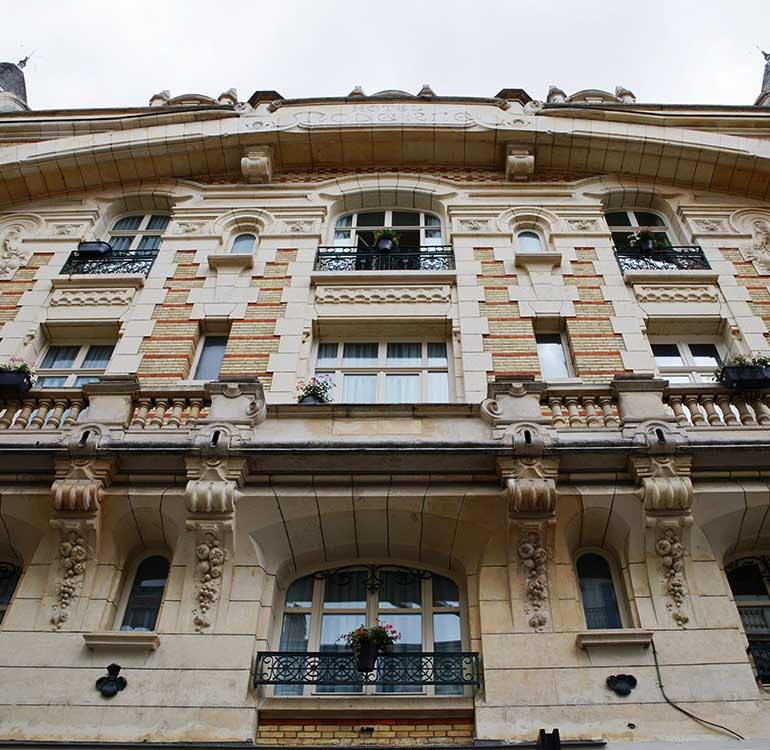
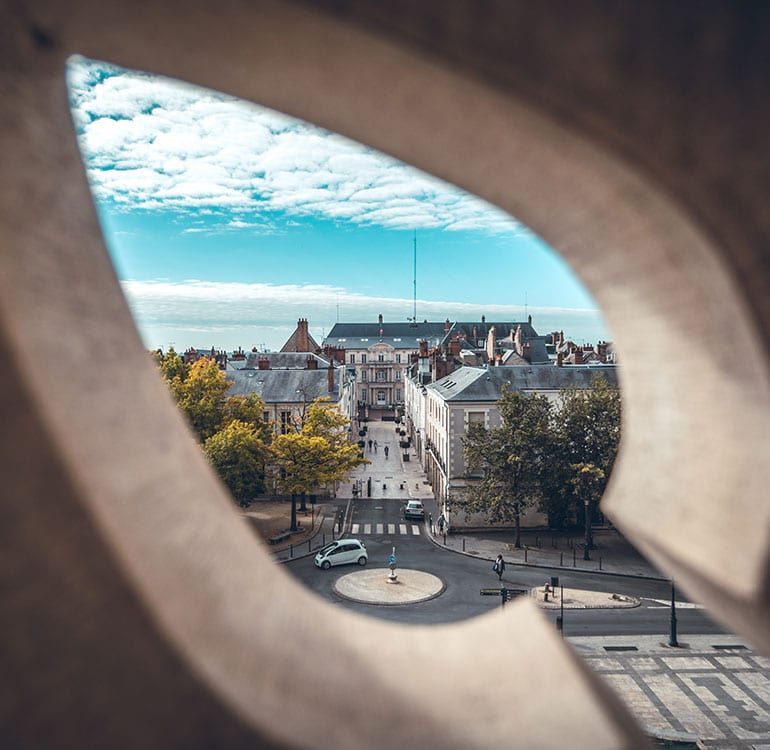
Orleans, regional capital
The city has looked to its prosperous past to develop economically, culturally and academically while preserving the quality of life it is known for.
The Loire Valley became listed as a UNESCO World Heritage site in 2000, further recognition for the city.
Orleans has consolidated its role as the regional capital and is asserting its position as a leading metropolitan areas to balance out the dominance of Paris. It was awarded the status of métropole (the most integrated form of cooperation between towns in a region) on 1 May 2017.
